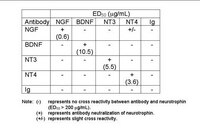MeCP2 controls BDNF expression and cocaine intake through homeostatic interactions with microRNA-212.
Im, HI; Hollander, JA; Bali, P; Kenny, PJ
Nature neuroscience
13
1120-7
2010
Show Abstract
The X-linked transcriptional repressor methyl CpG binding protein 2 (MeCP2), known for its role in the neurodevelopmental disorder Rett syndrome, is emerging as an important regulator of neuroplasticity in postmitotic neurons. Cocaine addiction is commonly viewed as a disorder of neuroplasticity, but the potential involvement of MeCP2 has not been explored. Here we identify a key role for MeCP2 in the dorsal striatum in the escalating cocaine intake seen in rats with extended access to the drug, a process that mimics the increasingly uncontrolled cocaine use seen in addicted humans. MeCP2 regulates cocaine intake through homeostatic interactions with microRNA-212 (miR-212) to control the effects of cocaine on striatal brain-derived neurotrophic factor (BDNF) levels. These data suggest that homeostatic interactions between MeCP2 and miR-212 in dorsal striatum may be important in regulating vulnerability to cocaine addiction. | 20711185
 |
Nicotinic alpha 7 receptor clusters on hippocampal GABAergic neurons: regulation by synaptic activity and neurotrophins.
Kawai, Hideki, et al.
J. Neurosci., 22: 7903-12 (2002)
2002
Show Abstract
Nicotinic acetylcholine receptors containing the alpha7 gene product are expressed at substantial levels in the hippocampus. Because of their specific locations and their high relative calcium permeability, the receptors not only mediate cholinergic transmission in the hippocampus but also influence signaling at noncholinergic synapses. We have used fluorescently labeled alpha-bungarotoxin to image alpha7-containing receptors on hippocampal neurons and to examine their regulation in culture. The highest levels of staining for such receptors were most commonly found on GABAergic interneurons identified immunohistochemically. The receptors were distributed in clusters on the soma and dendrites and were localized in part at GABAergic synapses. A 3 d blockade of electrical activity with tetrodotoxin or NMDA receptors with APV dramatically reduced the proportion of GABAergic neurons expressing high levels of receptor staining and reduced the mean number of distinguishable receptor clusters on individual neurons. Blockade of either GABA(A) receptors with bicuculline or nicotinic receptors with d-tubocurarine had no effect, although exposure to nicotine could increase the level of receptor staining. Anti-BDNF and anti-NGF antibodies produced decrements equivalent to those of tetrodotoxin and APV, whereas addition of BDNF and NGF each increased staining levels and increased the number of distinguishable receptor clusters on GABAergic neurons. The exogenous neurotrophins could not, however, overcome the effects of either tetrodotoxin or APV. The results indicate that both NMDA receptor activation and the neurotrophins BDNF and NGF are necessary to sustain the distribution patterns of alpha7-containing nicotinic receptors on GABAergic hippocampal neurons. | 12223543
 |










